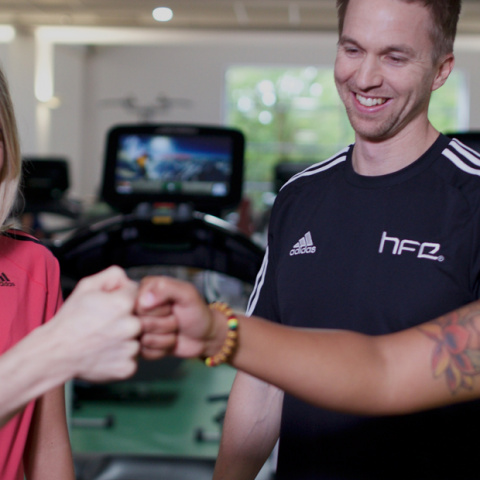Stretching before exercise has long been heralded as the best way to prevent injury before a workout. However, two separate studies suggest that regular stretching could, potentially, be doing you more harm than good.
Research published in the Journal of Strength and Conditioning concluded that if you stretch before you lift weights, you may find yourself feeling ‘weaker’ and ‘wobblier’ that you would expect during your workout.

These findings add to those of a study at the University of Zagreb in Croatia, which comprehensively re-analysed data from earlier experiments. The study’s findings were published in the Scandinavian Journal of Medicine and Science in Sports. The results of the two studies suggest certain warm-up exercises could prevent you from performing to the best of your ability and may even make you more prone to injury.
Static stretching – where the limbs are extended and held in a position for a period of time to make the joints and muscles more flexible – was highlighted as being particularly bad for us. The authors of the two reports say this could be because strengthening loosens muscles and tendons. This loosening then makes them more flexible, and less able to spring into action. The researchers found this loosening effect gives muscles and joints less support, increasing the risk of injury. To avoid injury, tendons need to be very elastic. Yet researchers argue that stretching makes tendons less elastic, and affects their ability to deal with the large energy load placed on them during exercise.
Croatian researchers analysed 104 studies of stretching and found competitive athletes that carried out static stretching reduced the strength in their muscles by almost 5.5 per cent. Muscle power fell even more if the stretch was held for more than 90 seconds. However, the authors found if the stretch is held for less than 45 seconds, the negative effect is reduced, though the stretched muscles were generally less strong.

Other types of exercise were also affected. The ability to run fast or jump as high as you can was also reduced by three per cent after stretching. A similar conclusion was reached by the authors of the study published in the Journal of Strength and Conditioning Research, in which a group of young, fit men performed standard squats with barbells after first stretching. The volunteers could manage 8.3 per cent less weight after the static stretching. They also interestingly reported that they felt less stable and more unbalanced after the stretching, when compared to other volunteers that did not stretch prior to lifting weights.
Dr Goran Markovic, a professor of kinesiology at the University of Zagreb, and the study’s senior author, suggested a better choice would be to warm-up dynamically by moving the muscles that will be called upon during your workout. Jumping jacks, high leg kicks and jogging on the spot will help to prepare muscles for additional exercise.


